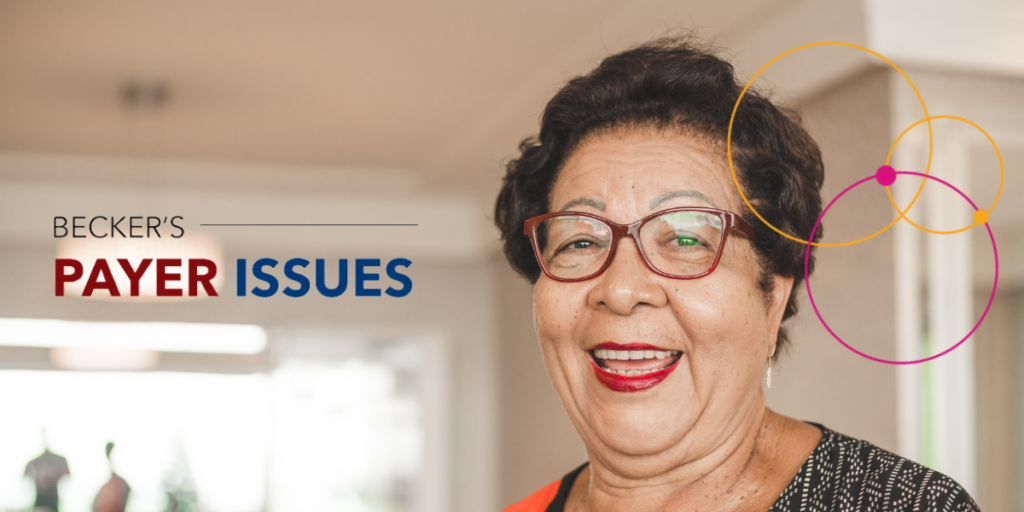
By Becker’s Healthcare in collaboration with Medecision
From both a payer and provider perspective, addressing patients’ social determinants of health (SDOH) plays a major role in the ability to keep costs down and deliver whole-person, value-based care.
Yet many organizations struggle with achieving SDOH goals because of the fragmented design of data collection systems, including electronic health records (EHRs).
During Becker’s Hospital Review’s 2023 Payer Issues Roundtable, in a session sponsored by Medecision, Kenneth Young, president and CEO of Medecision, moderated a roundtable discussion about opportunities and barriers to achieving success in SDOH-conscious whole-person care.
Three key insights were:
- Key priorities for advancing equitable whole-person care are resolving data inconsistencies, co-designing with communities and empowering patients to share data. There was consensus among participants that delivering on these priorities would greatly help organizations identify health disparities. However, it is improving scalability that would enable organizations to effectively address SDOH needs at a population level. “There is a supply issue on the community side for social care services,” the director of community impact, operations and partnerships at a large Catholic health system said. “The only way that issue is going to be solved is if we figure out ways to build up infrastructure and scalability.”
- Value-based contracts that share SDOH data can be highly effective, given adequate resources. Value-based arrangements often impose significant requirements on providers without equipping them with additional resources to deal with these requirements — for example around data collection, data analysis and data-driven initiatives (e.g., providing free transportation for low-income patients). “Providers are thinking, ‘How am I supposed to do this with the limited reimbursement dollars we get?’ [Payers ought to] incentivize both providers and patients to participate [in value-based programs],” a director at a kidney dialysis company said. “It’s necessary to get a dynamic payment structure model to cover these things,” a leader at the New York branch of a large health insurance company added.
- Using digital technologies can drive both scalability and patient engagement — and is necessary to future-proof healthcare. Patients over 65 years of age are often seen as uninterested in using health-tracking digital technologies. But this is a misconception, as nearly 30 percent of seniors are open to using such technologies, Mr. Young said. He also noted that in a decade, the oldest millennials — a generation whose attitude toward digital technologies is vastly more advanced than the way that health systems still operate today — will be entering their fifties. This has implications for the investments that organizations must make today to equip themselves with the agile tools they will need to operate effectively and efficiently in the future.” [Healthcare leaders and clinicians] need to challenge software vendors to think that way because, if not, we’re going to end up with islands again around digital solutions that 10 years from now will have to be rebuilt,” Mr. Young said, alluding to the majority of EHR software in use today.
A conclusion is that managing costs and delivering whole-person, value-based care requires gathering data about and addressing patients’ social determinants of health. But it is difficult to address SDOH today, in part, because of fragmented data systems. What’s needed to address SDOH and to prepare the healthcare sector for the future are integrated data systems and digital technologies that drive scalability and patient engagement.



About The Author: Medecision
Fully delivering on the promise of data — and making the business of healthcare simpler and more successful — Medecision offers a whole new world of possibilities. The company's flagship offering, Aerial™, stands as the market's most extensible clinical data platform. It offers complete contextual awareness of members and automates next best actions — simple campaigns, complex care management, utilization approvals, and more — for optimal health outcomes.
Aerial is not only quick to deploy, it is easy to manage. The platform's effectiveness in reducing both medical and administrative costs, coupled with its role in improving the member and patient experience, has made it the preferred choice for health plans and care delivery organizations. Presently, Aerial is instrumental in catering to over 10% of the U.S. population, marking a significant milestone in advancing healthcare efficiency and effectiveness.
More posts by Medecision